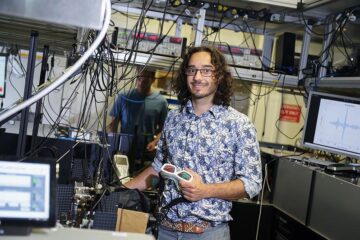FDA Issues order to recall and to prevent further use of human tissue

The Food and Drug Administration (FDA) has ordered Cryolife, Inc. („Cryolife“) of Kennesaw, Ga., a human tissue-processing firm, to recall distributed human tissue processed from October 3, 2001, to the present.
Under the order, the firm must also withhold from the market or destroy tissue processed after that date. FDA is taking this action because it has determined that Cryolife cannot ensure that the human tissue it processes for transplantation is free from fungal and bacterial contaminants.
Tissue from a donor processed by Cryolife on and after October 3, 2001, has been associated with the November 7, 2001, death of a patient who received a soft tissue implant during reconstructive knee surgery.
„This order not only protects patients from the unacceptable level of risk associated with tissue processed by Cryolife, it sends a clear signal that FDA stands ready to take whatever action is necessary to ensure the safety of human tissue,“ said Dr. Lester M. Crawford, FDA Deputy Commissioner.
During its inspection of Cryolife from March 25 through April 12, 2002, FDA found numerous, significant violations of FDA regulations. FDA issued a warning letter to Cryolife on June 17, 2002, after determining, among other things, that the firm had neither adequately investigated its validation of processing and testing methods, nor implemented recommendations from the Centers for Disease Control and Prevention (CDC), or any other procedures, to ensure that tissue processed by the firm is not contaminated.
After determining that Cryolife had failed to take adequate corrective measures to address possible infectious disease contamination of tissue in inventory and distribution, and after reviewing information provided by the firm in response to FDA’s warnings, FDA issued the present order.
Current federal regulations for human tissue require firms to prepare, validate, and follow written procedures to prevent infectious disease contamination or cross-contamination during tissue processing. Contamination may be caused by a variety of infectious disease agents including viruses, bacteria, fungi, and transmissible spongiform encephalopathy (TSE)-associated prions.
FDA’s concerns described in the order relate specifically to bacterial and fungal contamination of soft tissues such as cartilage and tendons. FDA’s investigation revealed, among other things, that of those standard operating procedures implemented by Cryolife to prevent infectious disease contamination or cross-contamination, many were not followed. In addition, Cryolife improperly distributed tissue from a donor after the firm confirmed the presence of harmful microorganisms in tissue samples from the same donor.
If a bacterial or fungal infection were to occur following a tissue transplant, the signs and symptoms would usually appear within days to weeks after transplantation. Therefore, it is unlikely that patients who have not recently received a transplant are likely to be at future risk. However, concerned patients are encouraged to contact their physicians.
FDA’s Center for Devices and Radiological Health (CDRH) is currently evaluating whether there are similar risks that may be posed by Cryolife’s heart valves, and will take further regulatory action if appropriate.
Media Contact
Alle Nachrichten aus der Kategorie: Medizin Gesundheit
Dieser Fachbereich fasst die Vielzahl der medizinischen Fachrichtungen aus dem Bereich der Humanmedizin zusammen.
Unter anderem finden Sie hier Berichte aus den Teilbereichen: Anästhesiologie, Anatomie, Chirurgie, Humangenetik, Hygiene und Umweltmedizin, Innere Medizin, Neurologie, Pharmakologie, Physiologie, Urologie oder Zahnmedizin.
Neueste Beiträge

Neue universelle lichtbasierte Technik zur Kontrolle der Talpolarisation
Ein internationales Forscherteam berichtet in Nature über eine neue Methode, mit der zum ersten Mal die Talpolarisation in zentrosymmetrischen Bulk-Materialien auf eine nicht materialspezifische Weise erreicht wird. Diese „universelle Technik“…

Tumorzellen hebeln das Immunsystem früh aus
Neu entdeckter Mechanismus könnte Krebs-Immuntherapien deutlich verbessern. Tumore verhindern aktiv, dass sich Immunantworten durch sogenannte zytotoxische T-Zellen bilden, die den Krebs bekämpfen könnten. Wie das genau geschieht, beschreiben jetzt erstmals…

Immunzellen in den Startlöchern: „Allzeit bereit“ ist harte Arbeit
Wenn Krankheitserreger in den Körper eindringen, muss das Immunsystem sofort reagieren und eine Infektion verhindern oder eindämmen. Doch wie halten sich unsere Abwehrzellen bereit, wenn kein Angreifer in Sicht ist?…





















